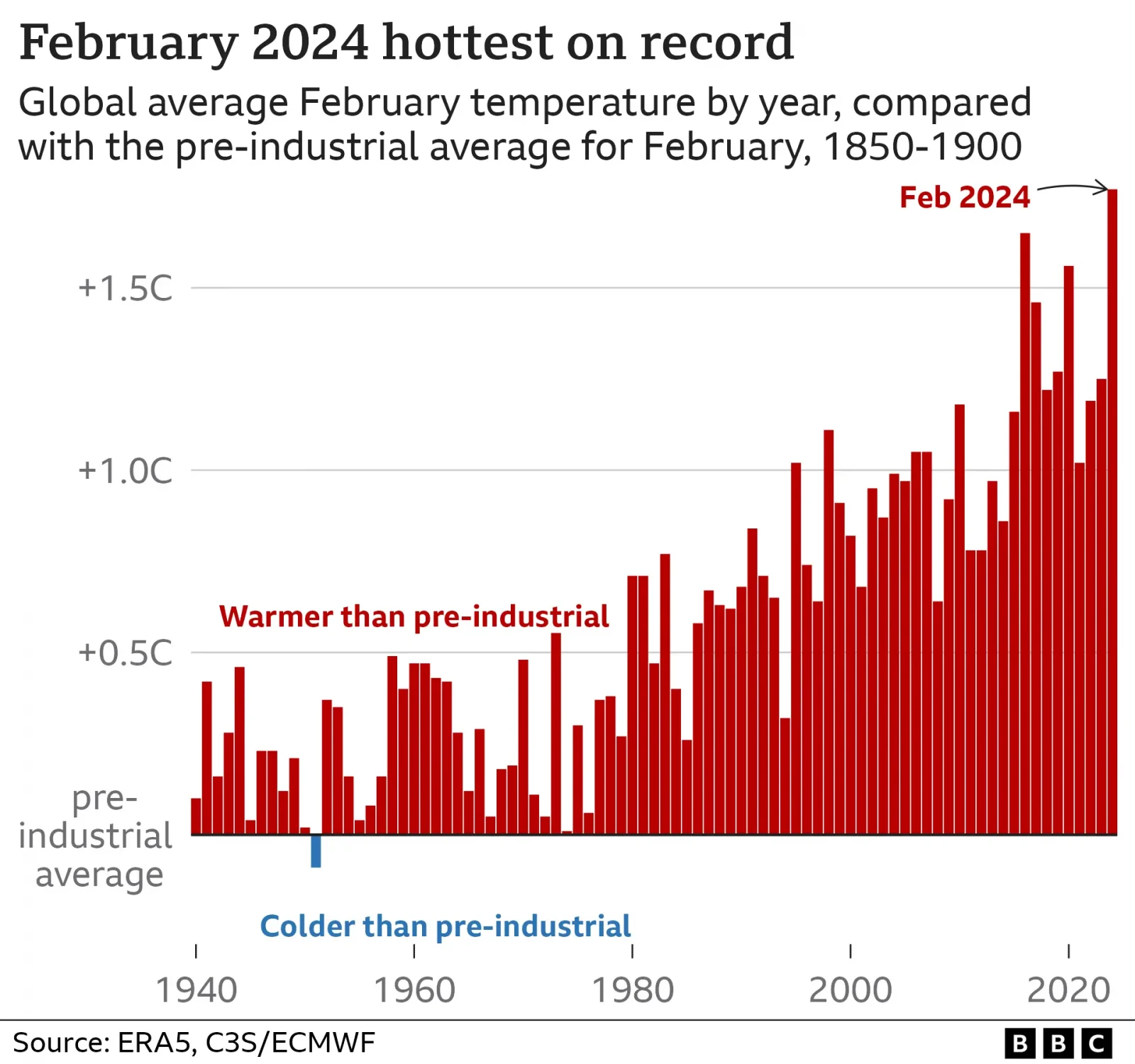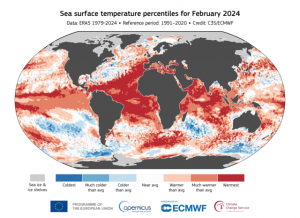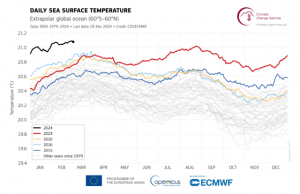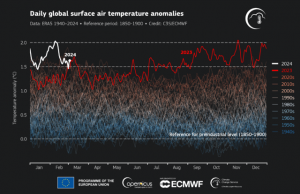
February 2024 Hottest on Global Records, Sets New Temperature Highs

February 2024 marked the hottest February on record globally, with soaring temperatures recorded by Copernicus, the EU’s climate monitoring service. The average global surface air temperature was 13.54 degrees Celsius, surpassing pre-industrial levels by 1.77 degrees Celsius.

This extends a streak of nine consecutive months setting new records for warmth. Record-high temperatures occurred in the first two weeks of February, with daily averages reaching two degrees Celsius above the pre-industrial average. Ocean temperatures also peaked, hitting 21.06 degrees Celsius, the highest ever recorded.

COPERNICUS CLIMATE CHANGE SERVICE/ECMWF
These warming oceans exacerbate climate change by melting sea ice and contributing to rising sea levels. Climate scientists warn of critical thresholds being exceeded, including the 1.5-degree Celsius mark. The recent records coincide with an ongoing El Niño event, further impacting global climate patterns.

C3S/ECMWF
Despite the event’s natural occurrence, human activities intensify its effects. Urgent action to stabilise greenhouse gas concentrations is emphasised to mitigate the impacts of climate change.
Read: After Listing his Power Firm, Tony Elumelu Advices FG to Privatise Electricity Transmission
About The Author
Related Articles
Côte d’Ivoire Thrash Burkina Faso to Seal AFCON 2025 Quarter-Final Spot
Côte d’Ivoire confirmed their place in the quarter-finals of the 2025 Africa...
ByWest Africa WeeklyJanuary 7, 2026Benin and Niger Relations Deteriorate Further as Diplomatic Expulsions Escalate
Diplomatic relations between Benin and Niger have sharply deteriorated following a series...
ByWest Africa WeeklyJanuary 5, 2026Nigerian Air Force Confirms Crash of CH-4 Combat Drone in Niger State
The Nigerian Air Force has confirmed that one of its CH-4 combat...
ByWest Africa WeeklyJanuary 5, 2026Mali Survive Shootout Against Tunisia, Set Up Senegal Showdown
Mali advanced to the quarter-finals of the Africa Cup of Nations after...
ByWest Africa WeeklyJanuary 5, 2026











